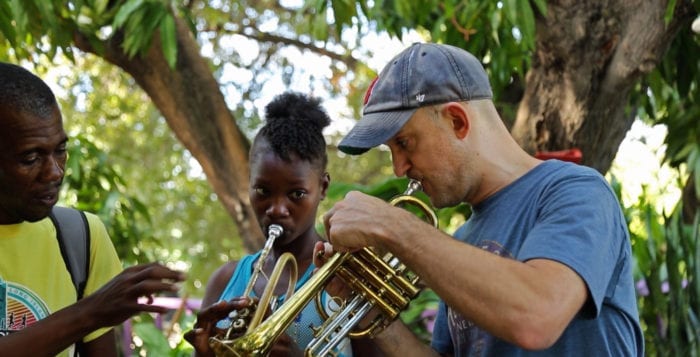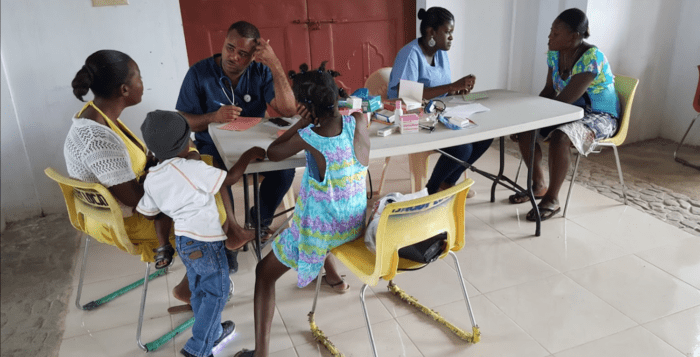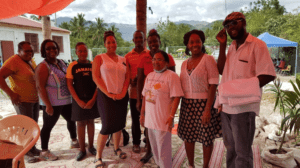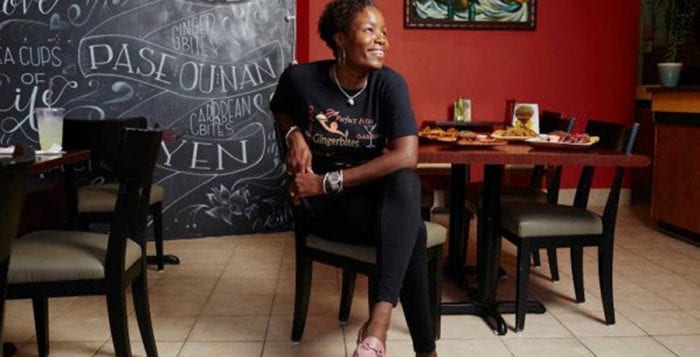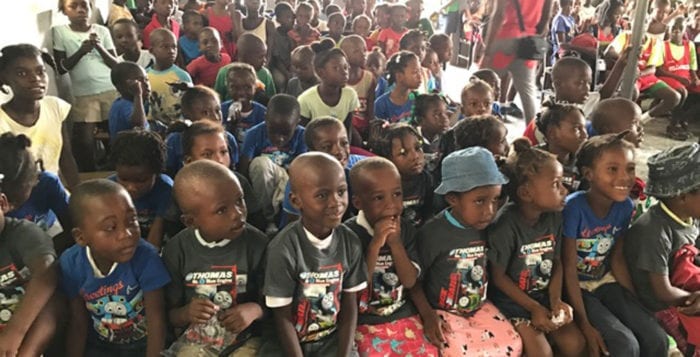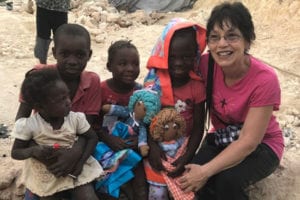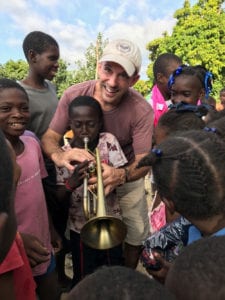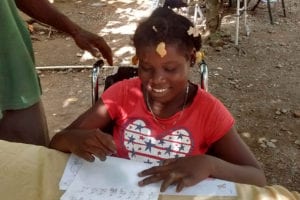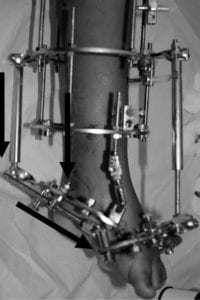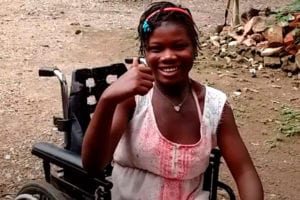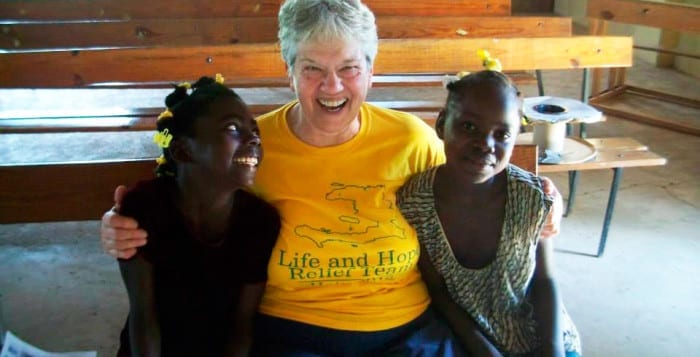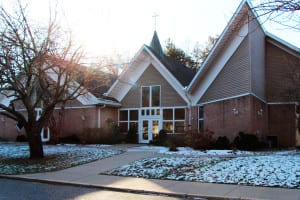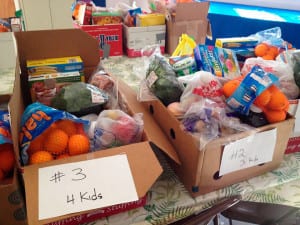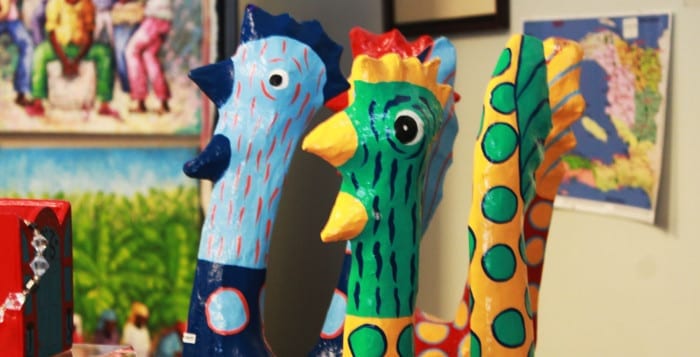By Tom Manuel
The Jazz Loft ambassadors’ annual mission to Haiti to teach children how to play instruments hit a blue note as the capital, Port-au-Prince, erupted with riots.
Elvoi, a music teacher that we had hired, shared words of wisdom with us after our trip. “Everything is OK thanks to God,” he said. “But in Haiti we live day by day, we live one day at a time.”
We had landed bright and early on a Wednesday morning, a six-person team consisting of music educators, professional musicians and an independent filmmaker from California. This was another regular trip under the banner of The Jazz Loft to continue building the music program in a school perched high atop a mountain that is making a difference in children’s lives one day at a time.
One part of The Jazz Loft’s trifecta mission is education, and we felt that our community outreach should stretch further than how we typically define community. Our definition includes thinking globally, and a partnership with True Love Missions, of Stony Brook, and their successful school in Haiti was a perfect match. Thanks to the philanthropic giving of Robert Lourie and Ivana Stolnik in addition to the generous giving which was the result of an annual fundraising concert, the Jazz Loft ambassadors embarked on their trip. Barrels of school supplies, instruments, clothing and food were shipped down in advance and the team packed as much as they could bring as well.
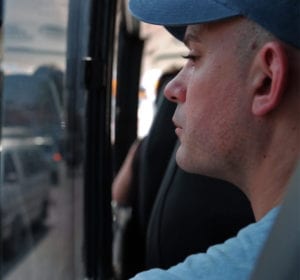
Our days unfolded one after the next with early morning rises, hikes up and down the mountain to the school, and sometimes rides on motorbikes which rival any amusement park ride known to man. Relationships were begun or made stronger, and the universal language of music transcended that of English and native Creole. Teaching trombone was interrupted by giving out worm pills and conversations with the school principal and teachers regarding school-book needs were put on welcomed pause to feed quite hungry people. The confines of an article cannot contain nor explain the experience of a trip like this. The art of loving and being so genuinely loved in return can only be experienced by doing it.
Then 48 hours before our departure, a protest march against the Haitian government took place in Port-au-Prince. A day before our scheduled exit protests had turned to riots, and from the school high atop the mountain overlooking the city, we could see two fires that signaled something was wrong. We awoke early Monday morning, Nov. 19, ready for departure but as we assembled something was missing. The sound of Haiti had gone mute. There is an unmistakable sound of thousands of people, motorbikes, trucks and animals all joining chorus in organized chaos as the sun rises, and it had gone silent. In its stead, we heard a natural silence penetrated by the sound of vintage radios projecting singular voices speaking of riots throughout the night that had heightened. The city had been shut down. Schools and all businesses were closed. Our van was not coming, and all vehicles were banned from the roads. A call to the U.S. Embassy in Haiti signaled greater worry as it was closed.
Fearing escalation, being stuck beyond our planned time and worry over our general safety, we explored available options and were getting nowhere fast. Hours passed, our window of opportunity was quickly fading, and our final and only choices were to stay, or bribe the police to give us an armed escort to the airport. As if defying reality — because these things only happen in movies, right? — we were quickly packing ourselves into a civilian vehicle and a police truck. I wound up being the lone person in the police vehicle as there was no more room in the other vehicle. As we drove the final distance to the main drag, I thought to myself, “Am I blowing this out of proportion? Is this really necessary?”
As we hit the bottom of the street, there was an abrupt stop, and machine guns were locked and loaded, and handguns quickly appeared. We turned right, and I was amazed to see nothing but an empty street. Our speed was where the vehicle maxed out, and the sound of walkie-talkies, phones and borderline yelling filled the vehicle. The trip to the airport takes a solid hour and a half typically on a good day, and the main drag is marked by thousands of people trying to sell their wares to buyers that do not exist. Our trip that day lasted roughly 15 minutes.
Piles of debris and tires on fire occasionally blocked the road which we would veer around. Burned out vehicles and damaged abandoned police vehicles marked the journey. At one point we passed a black armored vehicle that moved down the street like a dinosaur.
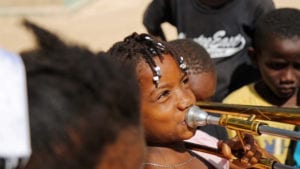
Having made this trip many times, I noticed familiar landmarks. We were getting closer and closer to the airport. The cop to my right was clicking a clave rhythm on the barrel of his gun. I couldn’t help but wonder if he was nervous or if this habit was normal. Ahead, a human-made roadblock of boulders and debris appeared causing the driver to slam on the brakes, fly into reverse and head right, the only other option available, only to be met by another roadblock.
Two police officers got out and started moving the boulders. A deafening sound, unlike any other, crescendoed and two masses of people began to converge from behind from both sides of our vehicles. It’s apparent that fear set in as the cops jumped back into the car, and we rammed whatever was left of the roadblock that couldn’t be moved.
Distance was quickly gained and this all seemed to end in an instant as we arrived at the airport and made our entrance almost seemingly under normal circumstances. Our plane took off an hour early, and within a few short hours we were home. It’s a bizarre reality, to say the least, to go from such contrasting environments in such a short period. The next days in Haiti saw increasing violence. Innocent people died. The New York Times published an article Nov. 23, but little of the drama in Haiti made it to our mainstream news.
In Haiti they live day by day. They live one day at a time. When things settle down, which they will, I will return to Haiti. I will continue to love, because in the end, even if I could move those Haitian mountains, even if somehow I could magically fix their broken and corrupt government, but didn’t love others, I would be nothing. Love doesn’t rejoice about injustice but rather it rejoices whenever the truth wins out. Love never gives up, it never loses faith, it’s always hopeful, and it endures through every circumstance. Love makes all the difference and there are many children in a little school atop a mountain in Haiti that I love very much, and they love me. And that my friend is always worth the journey.

